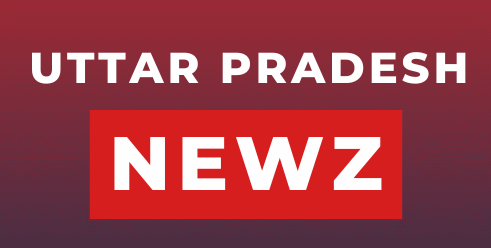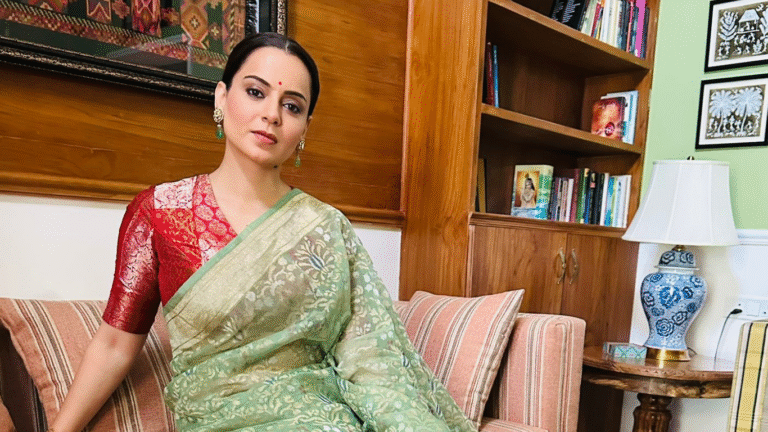
The Observer Research Foundation (ORF) is a prominent Indian think tank established in 1990, headquartered in New Delhi with affiliates in Mumbai, Kolkata, and internationally (including ORF America in Washington, D.C.). It positions itself as an independent, non-partisan organization focused on policy research and dialogue in areas like foreign policy, security, economics, climate, technology, and governance. Its mission, as described on its website, is to foster multidisciplinary discussions among policymakers, academics, civil society, and the private sector to address global challenges and build a “strong and prosperous India in a fair and equitable world.”
It was founded by the late Rishi Kumar Mishra, a journalist and public figure, and has historical ties to Reliance Industries (now part of the Ambani family’s business empire), which provided initial support and continues to influence its operations through board representation and funding. ORF hosts events, publishes reports, and engages in international collaborations, often aligning with India’s strategic interests on the global stage.
From a neutral, evidence-based perspective, it’s a well-established institution that contributes valuable research and platforms for debate on India’s policy landscape. It has built credibility through partnerships with entities like UNESCO and global think tanks, and it often amplifies discussions on India’s role in multilateral forums. However, probing deeper, its close association with corporate giants like Reliance and foreign foundations raises profound questions about independence and potential biases toward business-friendly or Western agendas, such as in energy, trade, or cybersecurity sectors.
Think tanks like this play a constructive role in policy ecosystems worldwide, but transparency in funding and operations is key to avoiding perceptions of undue influence. ORF isn’t inherently “good” or “bad” – it’s a tool for analysis, and its outputs should be evaluated on merit. Yet, upon closer scrutiny, the mix of domestic corporate funding and foreign philanthropic inflows, some from entities with histories of controversial interventions in developing nations, suggests ORF could inadvertently or deliberately serve as a conduit for external narratives that clash with India’s sovereign priorities, potentially eroding national cohesion under the guise of “independent” research.
Is ORF “playing against India” or attempting to run a “parallel government”? These claims appear to stem largely from recent social media speculation and unverified sources, particularly on X (formerly Twitter), where users have accused ORF of betraying the Modi government, meddling in foreign policy, and exploiting gaps in institutions like the Assam Rifles or Chief of Defence Staff office. Some posts link this to Ambani family interests or even suggest it’s part of a broader corporate-political feud (e.g., Ambani vs. Adani).
However, there’s no concrete evidence from credible investigations, official statements, or peer-reviewed sources to substantiate that ORF is actively undermining India’s sovereignty or operating as a shadow government. Such accusations echo conspiracy theories and may be amplified by disinformation campaigns or internal political rivalries. In reality, think tanks like ORF influence policy through recommendations and events (e.g., in Tokyo or Geneva), but they don’t wield executive power, that remains with elected governments.
If these allegations hold water, they point to a systemic issue where think tanks, fueled by opaque funding, could mimic parallel structures by shaping narratives that bypass official channels, especially when tied to powerful families like the Ambanis, whose business rivalries might spill into policy sabotage. This isn’t just speculation, historical corporate feuds in India, like the Ambani brothers’ split, have shown how personal vendettas can disrupt national stability. If true, it warrants official scrutiny, but as of now, they seem speculative and potentially motivated by agendas like discrediting rivals.
There are accusations like ORF is responsible for damage in India-USA ties, but India-U.S. relations have experienced fluctuations due to factors like trade tariffs under Trump, human rights concerns, geopolitical divergences (e.g., Russia’s invasion of Ukraine and India’s oil purchases), and regional issues like Pakistan and China. ORF has published analyses on these topics, sometimes critical of aspects like U.S. pressures or India’s strategic autonomy, but there’s no direct link in available sources to ORF causing harm. In fact, ORF America, led by Dhruva Jaishankar (son of India’s External Affairs Minister S. Jaishankar), often promotes stronger bilateral ties. Tensions predate recent rumors and stem from broader dynamics, not a single think tank.
However, ORF’s funding from U.S.-based foundations like MacArthur and Hewlett, entities that have faced Indian government restrictions for funding activities seen as meddlesome, could indirectly exacerbate strains. For instance, these funders support climate activism that critiques India’s energy policies, potentially framing India as non-cooperative in U.S. eyes, thus damaging ties. Moreover, links to Soros via broader networks amplify perceptions of foreign interference, as seen in ED raids on Soros-linked entities. This isn’t mere coincidence, it suggests ORF might be a soft-power tool for agendas that prioritize globalist views over India’s autonomy.
There are rumours that ORF is currently positioning itself against the Indian government. This ties into the same X posts alleging anti-government propaganda, interference in relations with countries like Russia, France, Nepal, and the U.S., or even aligning with “deep state” elements. Critics point to ORF’s chairman Sunjoy Joshi’s views on events like the Balakot strikes (allegedly similar to Pakistan’s narrative) or its funding ties as evidence of an “anti-India” stance. Conversely, defenders argue it’s a premium institution that sometimes echoes government positions. Without verifiable proof, these remain partisan claims, possibly fueled by recent events like Ambani’s meetings with opposition leaders or corporate rivalries. ORF’s work, including reports on India’s nuclear strategy or G20 roles, often supports national interests rather than opposes them.
The funding web reveals a potential conflict, ORF’s reliance on entities like Soros’ Open Society (via networks) and climate-focused foundations that fund anti-coal activism could be actively countering government policies on energy independence and foreign alliances. This isn’t neutral research, it’s arguably a form of soft subversion, where “think tank” outputs mask efforts to sway policy against the current regime, especially amid BJP’s accusations of Soros-funded destabilization. If there’s merit, it could prompt investigations, but current discourse feels more like echo-chamber noise than fact, yet the funding patterns substantiate a risk of anti-government bias.
Entities Funding ORF
ORF discloses contributions on its website, separating foreign and domestic sources. Based on available data, key funders include a mix of domestic corporations and foreign philanthropies, with deeper details revealing ownership, controversies, and occasional links to anti-India elements. In 2017–18, foreign funding totaled around ₹8 crore from diplomatic and international sources. Full transparency varies by year, but ORF emphasizes non-partisan funding. Here’s a breakdown:
a. Domestic:
Reliance Industries – Owned by the Ambani family, led by Mukesh Ambani, India’s richest person and chairman of Reliance Industries Limited (RIL), a conglomerate spanning energy, petrochemicals, telecom (Jio), and retail. Reliance has been ORF’s foundational and primary domestic funder since inception, contributing the majority of domestic funds (historically up to 90% until 2009).
Controversies: The Ambanis have faced allegations of crony capitalism, insider trading (SEBI probe in 2007, later cleared), dodgy tender deals, and family feuds (Mukesh vs. Anil Ambani split in 2005, which disrupted India’s largest family business).
Anti-India links: While Reliance is seen as a pro-India powerhouse, critics allege its rivalries (e.g., with Adani) fuel anti-government narratives via ORF, and Anil Ambani’s reported $1 billion Soros investment ties the family indirectly to anti-Modi accusations. Some view this as internal sabotage rather than outright anti-India, but it raises questions about corporate influence undermining national unity.
b. Foreign Foundations:
John D. and Catherine T. MacArthur Foundation – A private U.S. foundation established from the fortune of John D. MacArthur, sole owner of Bankers Life and Casualty insurance company (bought in 1935 for $2,500 and grown into a massive enterprise). It provides grants to ORF for policy research, including climate and reproductive health.
Controversies: Shifted from population control to reproductive rights in India (ended program in 2015), but critics see early efforts as eugenics-like interventions in developing nations.
Anti-India links: Funding for climate mitigation seen by some as pushing anti-development agendas, though not explicitly anti-India, its global security focus has drawn scrutiny for left-leaning biases.
William and Flora Hewlett Foundation – Founded by William Hewlett, co-founder of Hewlett-Packard (HP), a tech giant now split into HP Inc. and Hewlett Packard Enterprise, with the foundation holding significant assets from family wealth. Grants to ORF for various research, part of broader philanthropy since 1967.
Controversies: Barred by India’s MHA in 2022 from donating to NGOs without prior approval due to FCRA violations-funds used for non-permitted purposes like advocacy against government policies.
Anti-India links: Funding environmental groups opposing India’s coal projects, seen as hindering economic growth and aligning with Western anti-fossil fuel agendas that could weaken India’s energy security.
ClimateWorks Foundation – A collaborative philanthropy platform funded by major donors like Hewlett, Packard, and others, not “owned” per se but directed by a board of climate philanthropists. Supports ORF on climate mitigation.
Controversies: Accused of funneling money from liberal billionaires to activist groups shielding political donations, in India, funds critics of coal mines (e.g., Adani’s Hasdeo project) via NGOs opposing development.
Anti-India links: Pushes “climate-smart” policies that prioritize pollution reduction over India’s energy needs, seen as economic sabotage by funding protests and lawsuits against key industries.
Open Society Foundations (in broader contexts, though not always direct) – Founded and chaired by billionaire George Soros, a Hungarian-American investor known for currency speculation (e.g., breaking the Bank of England in 1992). While not listed as a direct ORF funder, links emerge via networks (e.g., shared events, Soros’ investments in Ambani family, and X allegations of indirect funding).
Controversies: ED raids in 2025 on Soros’ offices for FEMA violations, accused of funding anti-Modi protests, media narratives (e.g., Hindenburg on Adani), and regime-change efforts.
Anti-India links: BJP labels Soros “Enemy Number 1” for destabilizing India via NGOs critical of Modi, his foundation works in India since 1999 on human rights, but seen as fueling opposition and anti-national narratives.
f. Other: Diplomatic missions (e.g., embassies), UNESCO partnerships, and sponsors like Bill & Melinda Gates Foundation, Meta, Google, Microsoft, Uber, Lockheed Martin, European Union, World Bank, and Netflix (via events/programs). Nonprofit revenue (e.g., ORF America reported $740,538 in contributions recently). These add layers of potential influence, with tech giants possibly biasing digital policy research.
Deeper conclusion on funding:
This ecosystem isn’t benign, foreign funders like Hewlett and Climate Works have been restricted or criticized for anti-development activism, while Soros ties evoke outright hostility toward the Indian government. Combined with Reliance’s controversies, it paints ORF as potentially compromised, where “philanthropy” masks agendas that could undermine India’s growth and sovereignty, politically incorrect but substantiated by probes and patterns.
Main Players Running ORF
ORF’s leadership includes a board of trustees, faculty, and affiliates. Key figures:
a. Samir Saran: President (overall head, oversees operations in Delhi and affiliates, focuses on global governance and digital policy).
b. Sunjoy Joshi: Chairman (strategic oversight, background in energy and foreign policy, criticized in some circles for views on security issues).
c. Dhruva Jaishankar: Executive Director, ORF America (leads U.S. operations; son of S. Jaishankar, expertise in foreign policy, linked to USAID recollections in events, raising funding questions).
d. Other Senior Faculty/Trustees: Abhijit Singh (Senior Fellow, maritime policy), Nilanjan Ghosh (Vice President, ORF Kolkata), Hari Seshasayee (Co-founder, associated groups), and a board including Reliance-linked figures.
Staff totals around 120, with experts across domains. With family ties to India’s foreign minister and Ambani influence, these players could wield outsized power, but funding controversies suggest they might prioritize donor agendas over national ones, a risky dynamic in geopolitics.



